Regulation
BitMEX Disputes FTX Over Creditor Payment Via Sam Bankman-Fried’s Investment

In a contentious turn of events surrounding FTX’s bankruptcy case, BitMEX Research has cast doubt on claims made regarding the credit payment facilitated by Sam Bankman-Fried‘s investments. The popular crypto exchange’s research wing has slashed the claims of FTX creditor repayment being made via SBF’s investments through Alameda.
BitMEX Reveals Actual Reason Behind FTX’s Successful Compensation
The dispute arose following a report by Puck, highlighting Sullivan & Cromwell’s filing of a draft reorganization plan aiming to reimburse customers and creditors with a surplus. Moreover, FTX seeks to offer a reimbursement of $15 billion, which is significantly higher than the claim of $12 billion. This compensation was allegedly possible due to investments orchestrated by Bankman-Fried through Alameda.
However, BitMEX Research has challenged this assertion. It attributes the apparent reimbursement to a market downturn triggered by FTX’s failure, rather than the success of Bankman-Fried’s “great” investments.
“The reason that customers got ‘all of their money back’ was because the mark price of customer assets at the bankruptcy point was low, because the FTX failure caused a price crash. Not because of the great investments made by Sam,” BitMEX Research countered in a post shared on X.
Moreover, the stark disparity between the FTX claim window pricing and current market rates supports BitMEX’s stance. The FTX claim window launched in March 2024 showed significantly lower pricing with figures standing at $16,871 for BTC, $1,258 for ETH, $16.24 for SOL, and $286 for BNB.
Hence, the bankrupt crypto exchange attracted massive backlash for the move. Currently, the prevailing market rates are $63,028 for BTC, $3,028.51 for ETH, $153.21 for SOL, and $594.76 for BNB. Furthermore, industry participants raised concerns about the fairness and transparency of the bankruptcy proceedings.
Also Read: FTX Creditor Wants Debt Repayment In Crypto Instead of USD
Liquidation Spree Continues
In April 2024, FTX and its affiliate Alameda Research underwent substantial liquidation of their cryptocurrency assets, totaling $98 million. Notably, the insolvent FTX exchange opted to sell its Solana (SOL) holdings to repay its clients. Moreover, it could potentially maintain selling pressure in the future.
Arkham Intelligence, a blockchain analytics firm, reported that wallets linked to FTX and Alameda Research initiated liquidations amounting to $97.35 million in the past month. FTX’s portfolio includes $33.85 million in BOBA and $11.22 million in ETH, alongside controlling over 78% of the FTT supply. Conversely, Pantera Capital absorbed a significant portion of FTX’s Solana holdings.
Meanwhile, Alameda Research maintains substantial positions in various assets, such as $140 million worth of WLD, $102 million of BIT, $93 million of BTC, and $48 million of STG. Furthermore, there is a risk of these entities divesting their stakes moving forward due to the bankruptcy liquidation plan.
Also Read: FTX And Alameda Sold $98 Million In Crypto, More Selloff Coming?
The presented content may include the personal opinion of the author and is subject to market condition. Do your market research before investing in cryptocurrencies. The author or the publication does not hold any responsibility for your personal financial loss.
Regulation
Kraken Obtains Restricted Dealer Registration in Canada

Cryptocurrency exchange Kraken has obtained a Restricted Dealer registration in Canada. The registration comes after completing a pre-registration undertaking (PRU) process with Canadian authorities.
The exchange has also announced the appointment of Cynthia Del Pozo as its new General Manager for North America. Del Pozo will oversee Kraken’s growth initiatives in Canada.
Kraken Completes PRU Process In Canada
Kraken’s Restricted Dealer registration marks the completion of a thorough pre-registration undertaking (PRU) process with Canadian regulators. The registration places Kraken under the supervision of the Ontario Securities Commission (OSC). This oversight ensures users have access to secure crypto products within a properly regulated local ecosystem.
According to the Canadian Securities Administrators (CSA), the Restricted Dealer registration is one of eight firm registration types in Canada. This particular classification is used for firms that “do not quite fit under any other category.” It also comes with specific requirements and conditions set by securities regulators.
Kraken’s regulatory achievement comes during a period of change in the Canadian crypto sector. Just months earlier, competitor Gemini exchange announced its departure from the Canadian exchange market by the end of 2024. This was a move that surprised many and raised questions about cryptocurrency regulation clarity in the country.
Kraken Introduces New Canadian GM
Del Pozo has joined Kraken to lead its Canadian operations as the new General Manager for North America. She has nearly 15 years of experience in corporate development, operations, and fintech consulting. Del Pozo will help to guide Kraken’s expansion across Canada during this important phase of crypto’s development in the region.
“Canada is at a turning point for crypto adoption, with a growing number of investors and institutions recognizing digital assets as a vital part of the financial future. I’m thrilled to join Kraken’s mission at this critical moment, and to lead our expansion efforts, ensuring we continue to serve our clients long-term with innovative and compliant products,” said Del Pozo.
In her role, Del Pozo will focus on strengthening Kraken’s regulatory relationships and also scaling the company’s presence throughout North America.
Del Pozo also commented on the registration achievement: “This Restricted Dealer registration is testament to the high bar Kraken has always set for consumer protection, client service, and robust security. We’re excited to continue expanding our world-class investment platform and to deliver innovative products that provide real-world utility to Canadians.”
The Exchange’s Continued Growth In Canada
Over the past two years, the cryptocurrency exchange has shown steady expansion in Canada while working through the PRU process with regulators. During this period, the exchange has doubled its team size and monthly active users.
According to the official blog post figures, the firm now has more than $2 billion CAD in total client assets under custody. Kraken has also increased support for some of the most popular cryptocurrencies. It provides several CAD spot trading pairs that enable Canadians to trade crypto without paying expensive foreign exchange fees.
According to Innovative Research Group’s 2024 Investor Survey, 30% of Canadian investors currently own or have owned cryptocurrencies. Likewise, a KPMG Canada survey discovered that 30% of Canadian institutional investors now have exposure to cryptocurrencies, which means widespread adoption across investor types.
Disclaimer: The presented content may include the personal opinion of the author and is subject to market condition. Do your market research before investing in cryptocurrencies. The author or the publication does not hold any responsibility for your personal financial loss.
Regulation
USDC Issuer Circle Set To File IPO In April, Here’s All

USDC issuer Circle is reportedly set to file its initial public offering (IPO) in April as part of the firm’s plans to finally go public. The stablecoin issuer is allegedly already working with top financial institutions to achieve this move.
Circle To File IPO In Late April
According to a Fortune report, Circle is looking to file its IPO in late April, although the listing period remains uncertain. The report noted that when a company files to go public, its shares usually begin trading four weeks later, indicating that the listing could occur in May. However, there is also a scenario where the IPO process could drag on for months.
The stablecoin issuer is reportedly working with investment banks JPMorgan Chase and Citi to achieve its long-anticipated IPO. The firm had previously tried to go public in 2021 under a SPAC arrangement with a shell company.
The US SEC failed to sign off on this arrangement back then, and the company eventually scrapped these IPO plans by the end of 2022 when the crypto exchange FTX collapsed and the broader crypto market experienced a downturn.
Revelation about Circle’s IPO plans comes just days after the stablecoin issuer partnered with NYSE’s parent company to explore USDC’s use in traditional finance (TradFi). Meanwhile, the USDC stablecoin recently launched in Japan following approval from the country’s regulator. Notably, USDC is the first and only global dollar stablecoin approved under Japan’s stablecoin framework.
An Easier Path Now For The Stablecoin Issuer
Circle will likely face less resistance for its IPO plans under the current SEC administration. Under acting Chair Mark Uyeda, the Commission has shown its willingness to work hand in hand with crypto firms, which was missing under Gary Gensler’s administration.
US SEC Chair nominee Paul Atkins has also shown his willingness to change the approach that Gensler’s administration adopted towards crypto firms. During his nomination hearing, the SEC Chair nominee promised to prioritize providing regulatory clarity for the industry.
Circle’s IPO listing would be the biggest since the top crypto exchange Coinbase went public in 2021. Interestingly, Coinbase owns an equity stake in the crypto firm.
The firm’s USDC is currently the second-largest stablecoin by market cap, only behind Tether’s USDT. The stablecoin industry is heating up as more financial institutions look to develop their own stablecoin.
Donald Trump’s World Liberty Financial recently revealed plans to launch its USD1 stablecoin, while asset manager Fidelity is also considering doing so.
Disclaimer: The presented content may include the personal opinion of the author and is subject to market condition. Do your market research before investing in cryptocurrencies. The author or the publication does not hold any responsibility for your personal financial loss.
Regulation
Japan Set To Classify Cryptocurrencies As Financial Products, Here’s All

Cryptocurrency investors in Japan are bracing for impact following a plan to reclassify digital assets as financial products. While the plan has elicited excitement from cryptocurrency enthusiasts in the Far East, the ambitious plan will have to scale several legislative hurdles.
Japan Targets Reclassification Of Cryptocurrencies As Financial Products
According to a report by Nikkei, Japan’s Financial Services Agency (FSA) is inching toward classifying cryptocurrencies as financial products. Per the report, the FSA intends to achieve the reclassification via an amendment to the Financial Instruments and Exchange Act.
Currently, digital assets in Japan are considered crypto assets conferred with property rights and seen as payment means. Under the FSA’s plans, cryptocurrencies in Japan will be treated as financial products in the same manner as traditional financial products.
The FSA says it will adopt a slow and steady approach toward the reclassification, carrying out “a private expert study group” to test the waters. If everything goes according to plan, the FSA will submit the amended bill to Parliament in early 2026.
The classification of cryptocurrencies as financial products will have far-reaching consequences for the local ecosystem. Experts say treating cryptocurrencies as financial products will bring Japan closer to a crypto ETF launch amid a changing regulatory landscape.
Furthermore, the move may lower current cryptocurrency taxation for local investors since existing capital market rules will apply to the asset class.
A Fresh Bill For Crypto Insider Trading Is Underway
Apart from the reclassification, the FSA disclosed plans for new legislation against insider trading. The move flows treating cryptocurrencies as financial products and will strengthen existing investor protection rules.
“It is a direction to establish a new insider trading regulation that prohibits trading based on unpublished internal information,” said the FSA. “We will develop laws to prevent unfair transactions.”
However, Japan’s cryptocurrency scene is heating up to a boil, driven by local and international players. Last week, stablecoin issuer Circle secured approval from the FSA for USDC with top exchanges set to list the stablecoin.
Japan’s Metaplanet has tapped Eric Trump to join its Strategic Board of Advisors as it continues to load up Bitcoin.
Disclaimer: The presented content may include the personal opinion of the author and is subject to market condition. Do your market research before investing in cryptocurrencies. The author or the publication does not hold any responsibility for your personal financial loss.
-
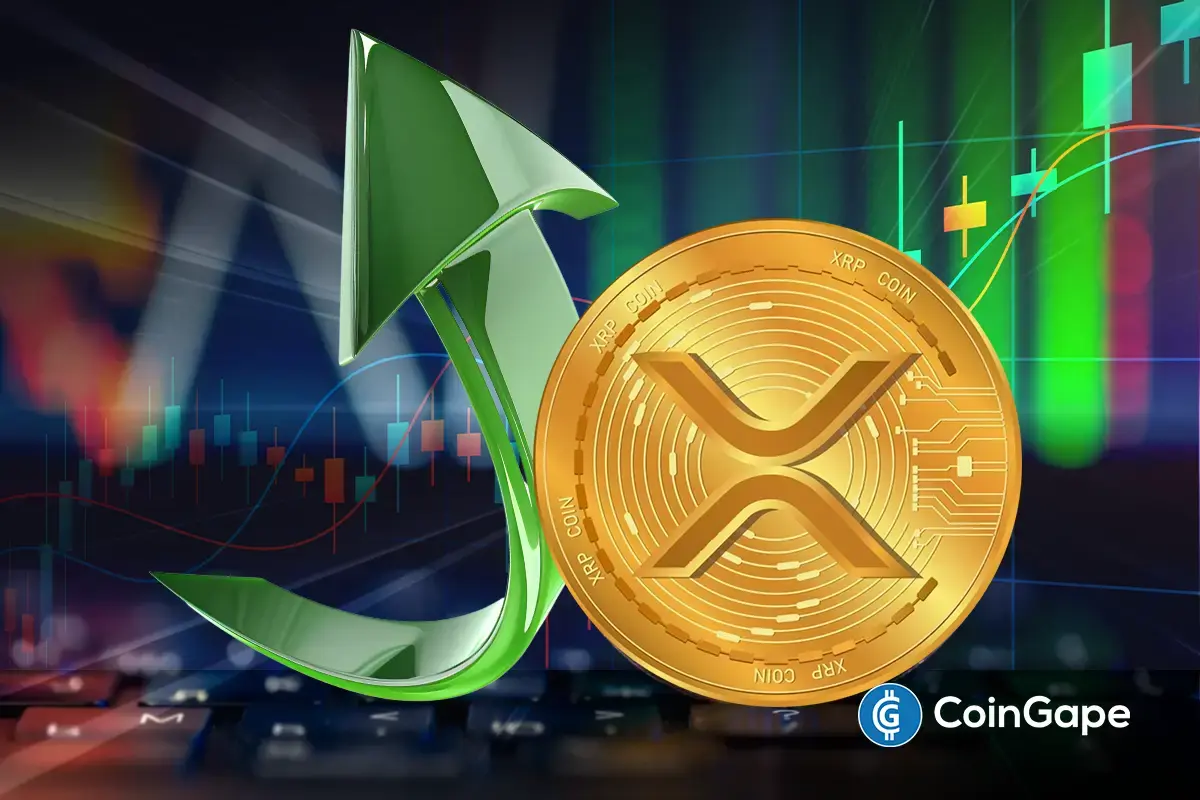
 Altcoin19 hours ago
Altcoin19 hours agoHere’s Why This Analyst Believes XRP Price Could Surge 44x
-
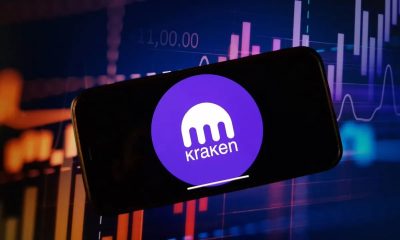
 Regulation23 hours ago
Regulation23 hours agoKraken Obtains Restricted Dealer Registration in Canada
-

 Ethereum16 hours ago
Ethereum16 hours agoWhy A Massive Drop To $1,400 Could Rock The Underperformer
-

 Altcoin18 hours ago
Altcoin18 hours agoHow Will Elon Musk Leaving DOGE Impact Dogecoin Price?
-

 Altcoin15 hours ago
Altcoin15 hours agoFirst Digital Trust Denies Justin Sun’s Allegations, Claims Full Solvency
-
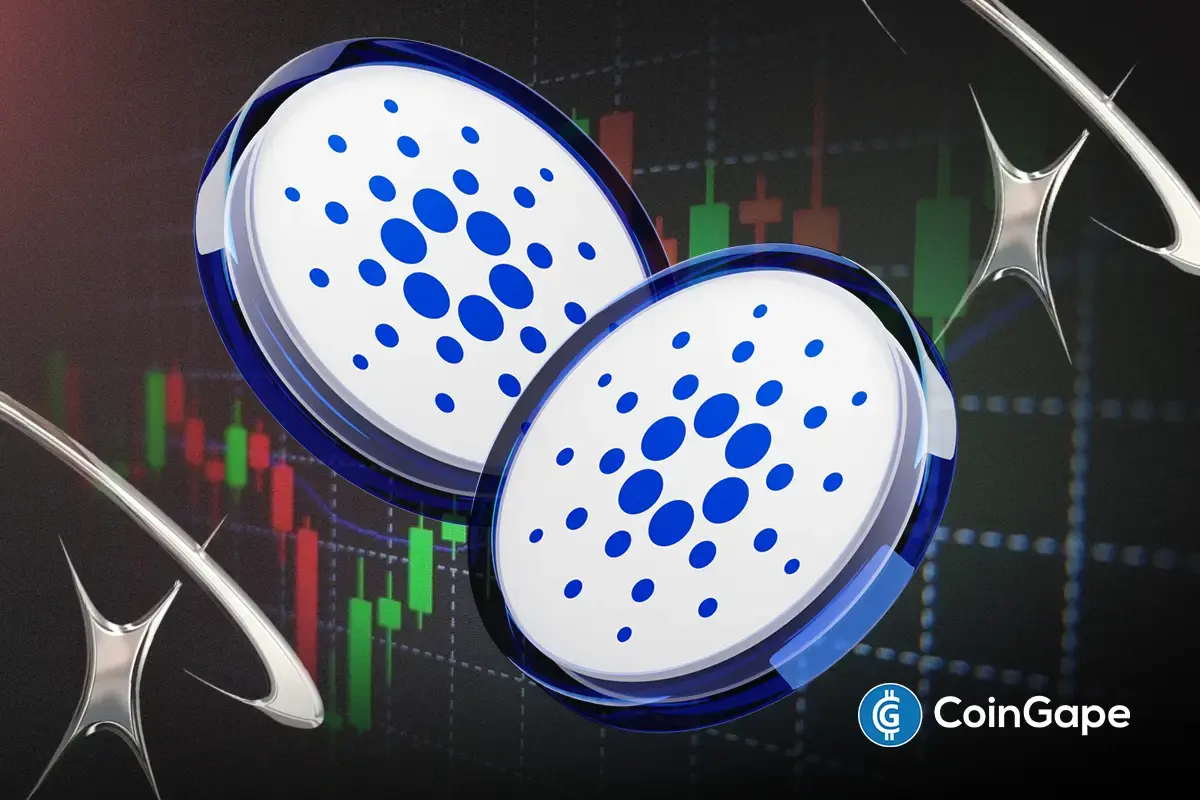
 Altcoin16 hours ago
Altcoin16 hours agoWill Cardano Price Bounce Back to $0.70 or Crash to $0.60?
-

 Market11 hours ago
Market11 hours agoXRP Price Reversal Toward $3.5 In The Works With Short And Long-Term Targets Revealed
-
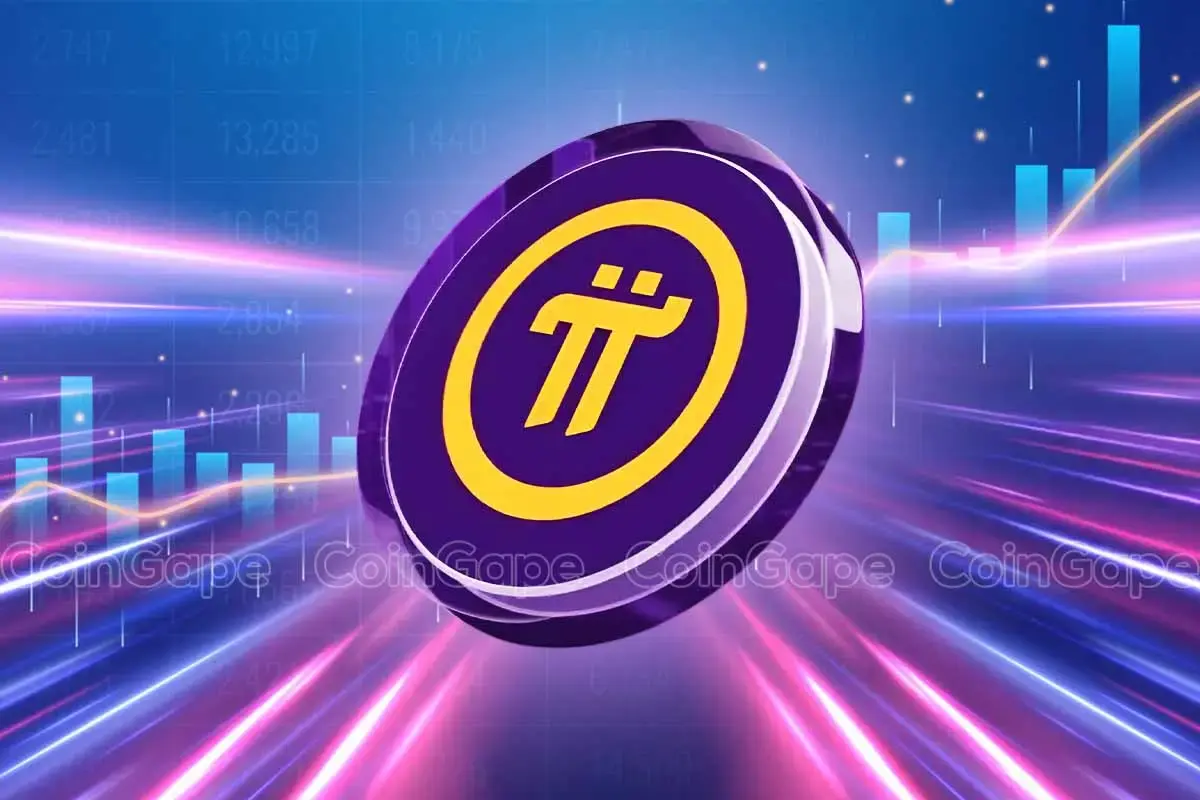
 Altcoin10 hours ago
Altcoin10 hours agoBinance Sidelines Pi Network Again In Vote To List Initiative, Here’s All








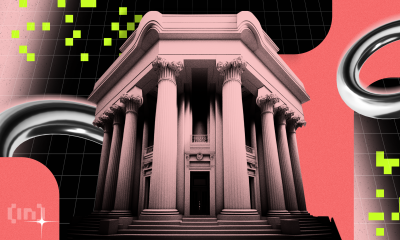
















✓ Share: